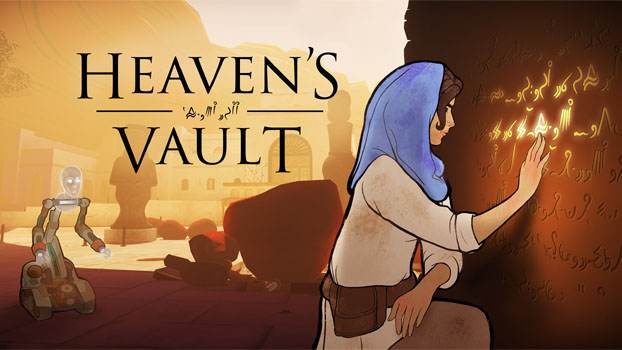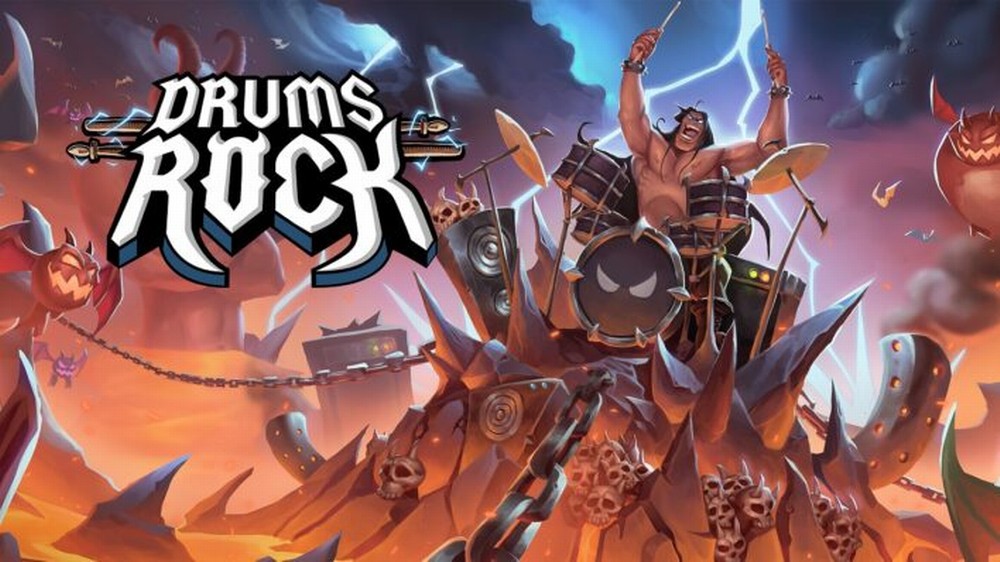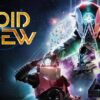Learning a new language can be a wonderful experience, allowing for a broadening of horizons, a newfound appreciation for the intricacies of your own mother tongue, and the ability to view things from the perspective of someone who lives hundreds of miles away. However, it doesn’t jump out as the easiest experience to translate to an engrossing gaming experience, so credit must be given to UK developer Inkle for releasing Heaven’s Vault, the main focus of which is to decipher an ancient alien language in order to uncover the secrets of the galaxy. Heaven’s Vault has been available on PC and PlayStation 4 since mid-2019, but has recently found its way to Nintendo Switch, allowing fans of the hybrid console to try their hand at solving a mystery thousands of years in the making.
While the main gameplay focus of Heaven’s Vault is to decipher various fragments of text, there are larger themes of history and philosophy at play, which makes for some weighty subject matter and some difficult decisions. There’s a large focus on free will and determinism, which is both discussed as a central core of the narrative, but also plays into the game’s mechanics, as Heaven’s Vault is built around a largely nonlinear story structure. You travel from planet to planet, uncovering artifacts and speaking to non-player characters, but it is up to you to decide what to do with the information that you are given and how to proceed at any particular point. Deciding to travel to one planet instead of another can cause you to stumble upon a particularly critical piece of story-related information or could result in you missing a vital conversation that contained an important clue to a new site. However, it never feels like any of your decisions are entirely wrong, as you’re always moving forward towards a goal: it just might not be the goal that you had in mind when you first set out.
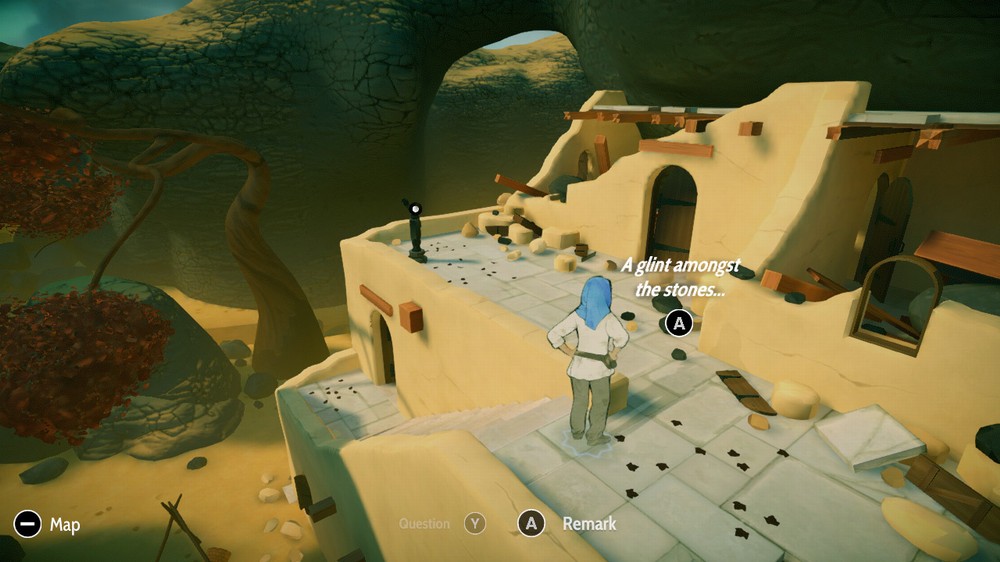 Heaven’s Vault allows the player to uncover its secrets in this way as both the narrative and the historical language is built in a set of layers, with much of the game being spent chipping away at small sections and uncovering tiny fragments of a larger whole. There aren’t many occasions where you stumble upon huge discoveries, and instead you’ll start to combine connected pieces of information to gain an idea of the larger overall picture. You start off with next to no knowledge of what the story is or how this strange new language works, but through trial and error you will start to learn, grow and understand your knowledge of what has happened in this galaxy and what is likely to come in the future.
Heaven’s Vault allows the player to uncover its secrets in this way as both the narrative and the historical language is built in a set of layers, with much of the game being spent chipping away at small sections and uncovering tiny fragments of a larger whole. There aren’t many occasions where you stumble upon huge discoveries, and instead you’ll start to combine connected pieces of information to gain an idea of the larger overall picture. You start off with next to no knowledge of what the story is or how this strange new language works, but through trial and error you will start to learn, grow and understand your knowledge of what has happened in this galaxy and what is likely to come in the future.
At the start of Heaven’s Vault you are given artifacts with small pieces of text inscribed on them, such as a brooch with three words, or short sentences. Thankfully, the sentence structure of this alien language is remarkably similar to ours, meaning that your work really only focuses on deciphering the words themselves. Initially, you are given three different potential translations to work with for each word, and by using contextual clues or a degree of educated guesswork, you choose from these options to try to work out what the full phrase is. There’s no explicit ranking or punishment for guessing correctly or incorrectly, though you can often gain some useful advantages by paying attention and translating correctly, either through being able to confirm a word and being able to avoid guesswork at a later date, or by gleaning information that would help with historical context further down the line.
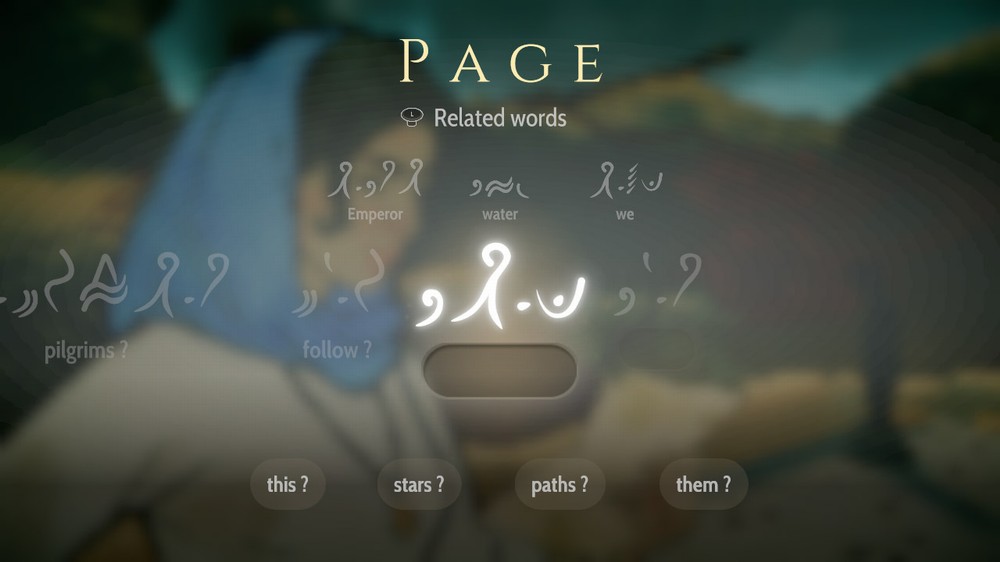 Once you have correctly identified a word a couple of times you are able to add it to your dictionary, meaning that you’re sure of the translation and won’t have to guess at it later on if it appears in another fragment of text. As I made my way through Heaven’s Vault I realized that there were certain patterns of symbols that I was able to recognize on my own, meaning that I could translate portions of the text even before the options appeared on screen, and it’s partially this logic that makes the game so successful: there aren’t often leaps of faith when it comes to deciphering pieces of text, and while there may be some sentences that are much longer than you’ve seen before, and some words that might be completely outside of your knowledge, if you take the time to build around the words that you do already know, then you can often develop a solid hypothesis about what the rest of the text is saying.
Once you have correctly identified a word a couple of times you are able to add it to your dictionary, meaning that you’re sure of the translation and won’t have to guess at it later on if it appears in another fragment of text. As I made my way through Heaven’s Vault I realized that there were certain patterns of symbols that I was able to recognize on my own, meaning that I could translate portions of the text even before the options appeared on screen, and it’s partially this logic that makes the game so successful: there aren’t often leaps of faith when it comes to deciphering pieces of text, and while there may be some sentences that are much longer than you’ve seen before, and some words that might be completely outside of your knowledge, if you take the time to build around the words that you do already know, then you can often develop a solid hypothesis about what the rest of the text is saying.
A lot of the text entries in Heaven’s Vault take on a religious theme, and the game’s topics of cycles of life, death and rebirth play a strong part in what you’re reading and deciphering. The protagonist, Aliya Elasra, is an archaeologist initially more interested in the potential profit associated with a site rather than its historical importance, but as the game progresses and both Aliya and the player begin to understand the importance of their quest, an emphasis is placed on the potential ramifications their findings could have on the galaxy, and how knowledge of the past can be both a blessing and a curse. Aliya is initially a brusque and short-answered conversationalist, more interested in things than people, but it soon becomes apparent through playing that being on good terms with a number of people can be beneficial, especially when trying to uncover the secrets of the game.
 Mechanically, Heaven’s Vault does have a few hang-ups when running on the Nintendo Switch, some of which are noticeable but don’t have an impact on the game itself, and some of which can cause genuine frustration. There’s a lot of noticeable slowdown in certain segments of the game, with a juddering framerate that can make it more difficult than it should be to interact with objects and time button presses correctly. I also noticed several instances of characters clipping through scenery as well, but that could be partly down to Heaven’s Vault unique art style as much as technical issues, as characters are presented as flat images against a 3D background, which makes for an interesting visual experience. The one issue that most disappointed me, though, was one location where Aliya glitched through a locked door midway through a sequence, leaving me unable to return through and solve the mysteries that remained within. This was particularly immersion breaking and demoralizing, as I had felt like I was on the path to uncovering something valuable, and this glitch reminded me that what I was playing was an artificial construction.
Mechanically, Heaven’s Vault does have a few hang-ups when running on the Nintendo Switch, some of which are noticeable but don’t have an impact on the game itself, and some of which can cause genuine frustration. There’s a lot of noticeable slowdown in certain segments of the game, with a juddering framerate that can make it more difficult than it should be to interact with objects and time button presses correctly. I also noticed several instances of characters clipping through scenery as well, but that could be partly down to Heaven’s Vault unique art style as much as technical issues, as characters are presented as flat images against a 3D background, which makes for an interesting visual experience. The one issue that most disappointed me, though, was one location where Aliya glitched through a locked door midway through a sequence, leaving me unable to return through and solve the mysteries that remained within. This was particularly immersion breaking and demoralizing, as I had felt like I was on the path to uncovering something valuable, and this glitch reminded me that what I was playing was an artificial construction.
I think that my response to this last issue speaks to how good of a job Heaven’s Vault does of creating a world that feels tangible and real, and how you soon start to feel like you’re just a small part of what has come before and what will continue after you’re gone. In a similar way to the game’s theme of rebirth, Heaven’s Vault, upon completion, offers up a New Game+ mode where you remain in possession of your dictionary of words but are now presented with longer, more difficult sentences and the opportunity to pursue leads that you might have passed up on previous playthroughs. When I finished the game for the first time I immediately booted up this option, and while it sometimes felt a little dry to go through some of the same mandatory sections, the greater sense of understanding of what was going on made this worthwhile, and I was happy to try my hand at deciphering longer sequences.
I greatly enjoyed my time with Heaven’s Vault in spite of a few technical issues, and while the pacing and mechanics of the game might be a little too serene for some players, there’s a lot to be admired about how this experience is built and how it offers something different from most other options currently available. It’s not a puzzle game per se, but more of a mystery which is solved by perseverance rather than immediate revelations. Even having finished the game it feels like there are more mysteries waiting for me in some uncovered corner of the galaxy, and with a smartly designed New Game+ option I’m more than happy to dive into the story once again.

